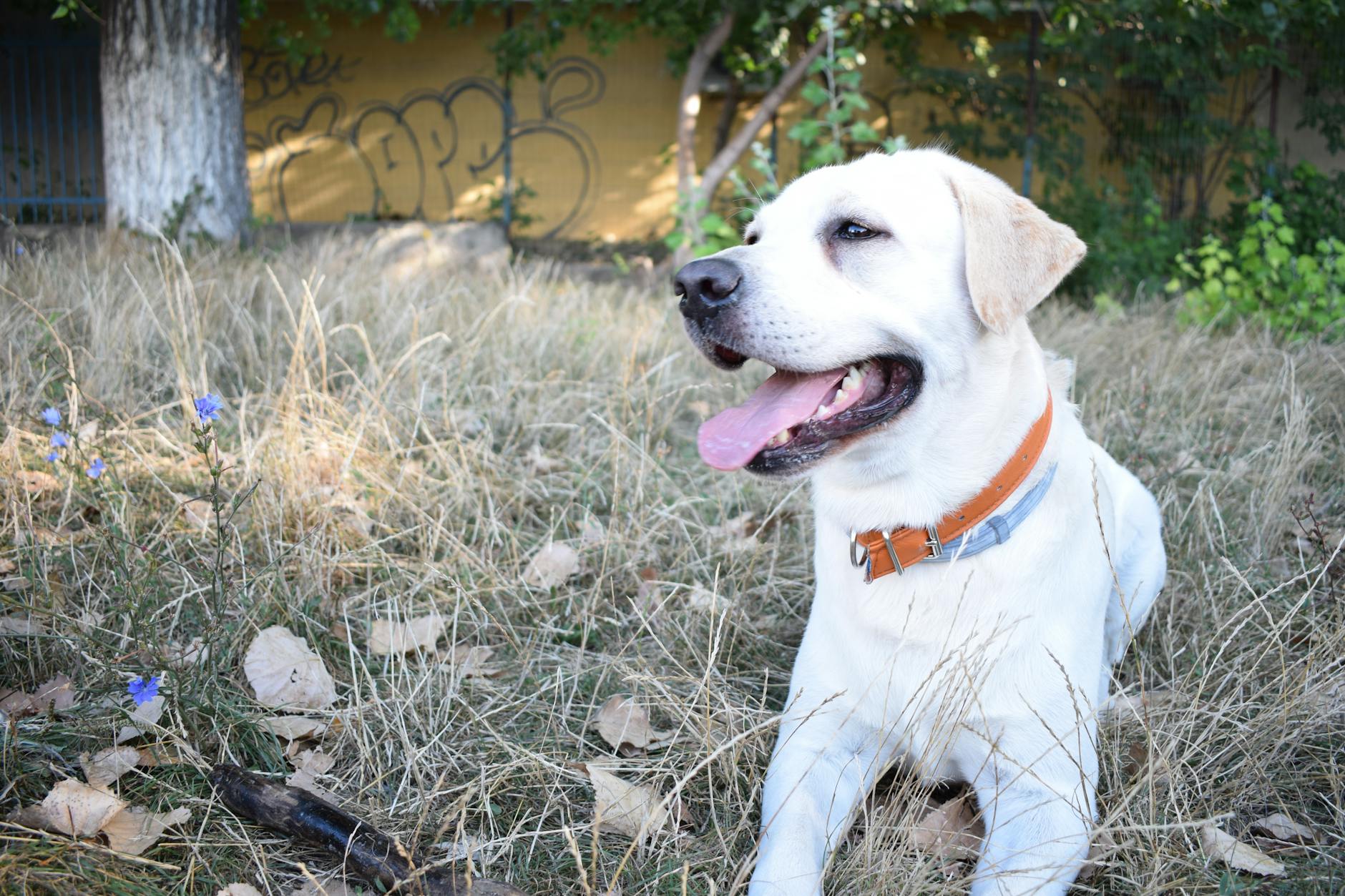Dog ownership offers a multitude of benefits that can enhance your life in various ways. From providing unwavering companionship to improving your physical and mental health, dogs are more than just pets; they are loyal friends and integral family members. However, to fully enjoy the advantages of having a dog, it’s crucial to select a breed that matches your lifestyle. This article delves into the key benefits of dog ownership and guides you through the process of choosing the perfect breed to fit your daily routine and preferences.
Key Takeaways
- Dog ownership provides companionship, boosts physical health, and enhances mental well-being.
- Different dog breeds cater to various lifestyles, making breed selection essential for a harmonious relationship.
- Active lifestyles may benefit from energetic breeds like Golden Retrievers or Labradors, while more relaxed individuals might prefer Bulldogs or Basset Hounds.
- Rising dog breeds offer unique characteristics that are gaining popularity among diverse dog lovers.
- Finding the perfect breed involves considering your lifestyle, living situation, and personal preferences, beyond just breed popularity.
1. Companionship

Dogs are not just pets; they are devoted friends and family members. They thrive on companionship, providing love and support to their human best friends. This bond is a source of joy and comfort for both the dog and the owner.
The friendship of a dog can contribute to improved mental and emotional well-being, making every day a little brighter.
Rescue and adoption can also be a pathway to companionship, offering a second chance at a happy life for both the dog and the adopter. Here are some benefits of dog companionship:
- Unconditional love and loyalty
- A partner for activities and adventures
- Emotional support during tough times
- Increased opportunities for socialization
Understanding the unique qualities of the breed and adapting your lifestyle accordingly can enhance the companionship experience. Whether it’s a Yorkshire Terrier’s affectionate nature or a Labrador’s loyalty, the right dog can bring immeasurable joy to your life.
2. Physical Health Improvement

Owning a dog can lead to significant improvements in physical health. Regular walks and playtime with a dog ensure daily exercise, which is essential for cardiovascular health and maintaining a healthy weight. Additionally, the responsibility of caring for a dog often encourages owners to adopt a more active lifestyle.
- Increased physical activity: Dog owners are more likely to meet daily exercise requirements.
- Weight management: Engaging in physical activities with a dog can help with weight control.
- Heart health: Studies suggest that dog owners may have lower blood pressure and cholesterol levels.
Dog ownership can transform your daily routine, incorporating more physical activity naturally and enjoyably. It’s not just about the walks; it’s about the lifestyle change that promotes overall health.
Selecting a dog breed that matches your activity level is crucial. High-energy breeds like Border Collies or Australian Shepherds are perfect for active individuals, while breeds like Bulldogs or Shih Tzus may be suitable for those with a more relaxed lifestyle.
3. Mental Well-being Enhancement

Owning a dog can be a transformative experience for mental well-being. Dogs provide more than just companionship; they can significantly reduce stress and anxiety levels. Regular interaction with a canine friend has been shown to boost mood and provide emotional support, especially in children who may benefit from therapy involving dogs.
The presence of a dog in one’s life can lead to increased physical activity, which is intrinsically linked to mental health. The simple acts of walking and playing with a dog can help alleviate symptoms of depression and loneliness.
- Emotional Support: Dogs offer comfort and can help lower cortisol levels, the stress hormone.
- Assistance for Disabilities: Specially trained dogs can assist individuals with disabilities, offering both practical help and emotional stability.
- Role in Counseling: Animals, including dogs, are increasingly recognized for their role in therapeutic settings, aiding in the counseling process.
4. Social Interaction

Owning a dog naturally leads to increased social interaction. Whether it’s meeting other dog owners at the park or engaging with neighbors during walks, dogs act as social catalysts. They encourage conversations and connections that might not otherwise occur.
- Dog owners are more likely to engage in conversations with strangers.
- Regular walks with your dog can lead to routine interactions and friendships.
- Dogs in social settings can help reduce social anxiety by providing an easy topic of conversation.
Owning a dog not only enriches your social life but also provides numerous opportunities for your pet to socialize. Proper socialization of dogs is crucial for their development and can lead to a well-adjusted, friendly pet. Early exposure to different environments and other animals can help them become more adaptable and confident.
5. Safety and Security

Owning a dog can significantly enhance the safety and security of your home. Dogs are natural protectors and their presence can deter potential intruders. Additionally, the bond between a dog and its owner fosters a strong sense of responsibility in the owner to ensure the pet’s well-being.
Dogs not only contribute to the physical security of a household but also provide a comforting presence that can alleviate feelings of loneliness or vulnerability.
To maximize the safety benefits of dog ownership, consider the following points:
- Backyard Safety: Ensure your yard is securely fenced to prevent your dog from wandering and to keep unwelcome animals out.
- Doggie Doors: While convenient, they can also pose a security risk. Evaluate if it’s appropriate for your home.
- Collars, Tags, and Microchips: Keep your dog identifiable and trackable in case they get lost.
- Leashed Is Loved: Always use a leash in public to maintain control and prevent accidents.
Remember, a well-trained dog is a safe dog. Regular training and socialization are crucial for your dog’s safety and for the safety of others.
6. Lifestyle Compatibility

Selecting the right dog breed requires careful consideration of your lifestyle. The breed you choose should complement your daily routine and energy levels. For instance, if you’re someone who enjoys jogging or hiking, a high-energy breed like a Border Collie or a German Shepherd would thrive in your care. On the other hand, a more sedentary lifestyle might be better suited to a French Bulldog or a Cavalier King Charles Spaniel, known for their lower exercise needs.
It’s not just about the dog’s needs; it’s about finding a harmonious match that benefits both you and your pet.
Consider the following factors when assessing lifestyle compatibility:
- Activity Level: Match the dog’s energy to your own. Active breeds for sporty individuals, calmer breeds for relaxed homes.
- Living Space: Larger breeds may need more room to roam, while smaller breeds can be content in cozy apartments.
- Family Dynamics: Some breeds are known for being great with children, while others may prefer a quieter adult-only environment.
- Time Commitment: Certain breeds require more grooming or training time. Be realistic about the time you can dedicate to your dog.
Remember, a mismatch between your lifestyle and your dog’s breed can lead to frustration for both parties. Take the time to research and reflect on what would work best for your situation.
7. Choosing the Right Breed for Your Family

Selecting the perfect dog breed for your family is more than just falling in love with a particular look or size. It’s about finding a companion that fits seamlessly into your family’s lifestyle and dynamics. Consider the breed’s temperament, energy level, and size to ensure they can thrive in your home environment.
- Temperament: Some breeds are known for their patience and gentleness, making them great for families with children, while others may be more suitable for active singles or couples.
- Energy Level: High-energy breeds will require more exercise and playtime, which can be a great fit for an active family, but a challenge for a more sedentary lifestyle.
- Size: The size of the dog should match your living space. Larger breeds might need more room to move around, while smaller breeds can be more adaptable to smaller living spaces.
Making an informed choice involves evaluating how a breed’s characteristics align with your family’s needs. It’s essential to meet the dog in person, as individual personalities can vary even within a breed.
Remember, the goal is to find a dog that complements your family’s life, not complicates it. Take the time to research, visit shelters or breeders, and interact with different breeds to discover which one will be the perfect addition to your family.
8. Golden Retriever

The Golden Retriever is one of the world’s most beloved and popular dog breeds, known for their friendly and affectionate nature. These dogs are excellent companions, particularly for families with children, due to their intelligence, obedience, and ease of training—ideal for first-time dog owners.
Golden Retrievers are quick to pick up commands and have a natural aptitude for learning. Their strong desire to please makes them highly motivated in obedience training.
Golden Retrievers are not only great family pets but also versatile in various roles. They are often used as therapy dogs, bringing comfort to those in need, and their strength and endurance make them suitable for search and rescue work.
- Patient and tolerant with children
- High energy level, requiring regular exercise
- Loves outdoor activities like hiking and playing fetch
Their gentle nature and adaptability to different roles make Golden Retrievers a top choice for an active family looking for a loyal and intelligent companion.
9. Labrador Retriever

The Labrador Retriever continues to capture the hearts of dog lovers worldwide. Their friendly and outgoing nature makes them ideal family pets, and their high intelligence and trainability contribute to their widespread popularity.
Labradors are not just pets; they are loyal friends and integral family members, bringing joy and companionship to households.
When considering a Labrador Retriever, it’s important to note their need for regular exercise and mental stimulation. Here’s a quick overview of their key features:
- Friendly and outgoing personality
- Highly intelligent and trainable
- Well-suited for families and individuals
- Known for their loyalty and affection
Labrador Retrievers are also known for their playful nature, which makes them great companions for children and adults alike. Their adaptability to various living environments and their eagerness to please make them a top choice for those looking to add a furry member to their family.
10. Bulldog

The Bulldog, with its distinctive wrinkled face and stocky build, is a breed that exudes a calm and friendly demeanor. Bulldogs are known for their loyalty and affectionate nature, making them a great fit for families and individuals seeking a low-energy companion.
Key features of Bulldogs:
- Calm and friendly demeanor
- Low energy, suitable for less active lifestyles
- Affectionate and loyal to their families
- Requires minimal grooming due to their short coat
Bulldogs may not have the high energy of some other breeds, but they more than make up for it with their loving personality and easygoing nature. They are particularly well-suited for apartment living or homes without large yards. However, potential owners should be aware of the breed’s susceptibility to health issues, particularly related to their respiratory system.
Bulldogs are an embodiment of gentle strength and companionship, offering a unique blend of tenacity and tenderness that can enrich any home.
11. Basset Hound

The Basset Hound, with its distinctive droopy ears and gentle demeanor, is a breed that has won the hearts of many, including veterinarians. Known for their calm and friendly nature, Basset Hounds are a top choice for those seeking a laid-back companion.
Basset Hounds are not just about their charming looks; they are also incredibly patient and good with children, making them an excellent family pet.
While they may not require extensive exercise like some breeds, they do enjoy a good sniff and leisurely walks. Their short stature and heavier build should be considered when planning activities.
Here’s a quick overview of the Basset Hound’s characteristics:
- Temperament: Calm, Friendly, Patient
- Exercise Needs: Moderate; enjoys leisurely walks
- Good with Children: Yes
- Size: Medium
- Maintenance: Low to moderate grooming needs
12. Rising Dog Breeds

As the world of dog ownership evolves, so do the breeds that capture the hearts of enthusiasts. Rising dog breeds reflect the changing preferences and lifestyles of pet owners, offering new opportunities for companionship and unique traits that cater to various needs.
The landscape of dog popularity is ever-changing, with certain breeds gaining momentum and others seeing a decline. This dynamic nature of breed popularity highlights the importance of staying informed and open to new possibilities when selecting a pet.
Here’s a quick overview of some rising dog breeds and their main characteristics:
- Cane Corso: Imposing, loyal, protective
- Belgian Malinois: High-energy, intelligent, loyal
- Giant Schnauzer: Robust, versatile, protective
- English Cocker Spaniel: Friendly, agile, adaptable
- Mudi: Versatile herding dog, lively, hardworking
- Russian Toy: Small, elegant, affectionate
These breeds have seen a notable increase in popularity over the past decade, with the Mudi and Russian Toy making impressive debuts in the dog world. As you consider adding a furry member to your family, exploring these rising breeds could lead you to a perfect match.
13. Conclusion: Finding the Perfect Dog Breed for You

In the journey to finding your ideal canine companion, personal preferences, lifestyle, and living situation are pivotal. The perfect dog breed for you transcends popularity charts, focusing instead on a breed that complements your life.
- Consider the size and energy level of the dog in relation to your living space.
- Reflect on the amount of time you can dedicate to exercise, training, and grooming.
- Assess any breed-specific health concerns and their compatibility with your family.
By taking the time to understand the unique characteristics of various breeds and how they mesh with your personal circumstances, you can forge a bond that is both rewarding and enduring.
Remember, the individual personality of each dog is as important as the breed’s general traits. Engage with different breeds, seek advice from adoption centers or reputable breeders, and trust your instincts to guide you to your perfect match.
14. How Can I Find the Perfect Dog Breed for Me?

Finding the perfect dog breed for you involves a blend of understanding your lifestyle, living situation, and personal preferences. Consider your activity level and the amount of time you can dedicate to your dog; this will guide you towards breeds that match your energy and availability.
- Assess your living space: Apartment dwellers may prefer smaller, quieter breeds, while those with yards might opt for more active dogs.
- Think about family members: If you have children or other pets, look for breeds known for their friendliness and patience.
Remember, the ideal breed for you is one that complements your life and brings joy to your household.
Lastly, don’t rely solely on popularity rankings. Instead, spend time interacting with different breeds and researching their temperaments and care requirements. A well-informed decision will lead to a rewarding companionship.
Choosing the perfect dog breed that aligns with your lifestyle and preferences can be a delightful yet daunting task. To simplify your search, visit our comprehensive guide on our website. We provide personalized recommendations to help you find a furry friend that will fit seamlessly into your life. Don’t wait any longer to meet your ideal companion—start exploring now!
CONCLUSION: Embracing the Joy of Dog Ownership
In conclusion, dog ownership offers a multitude of benefits that can enhance your life in various ways. From providing companionship and boosting physical activity to improving mental health and offering unconditional love, dogs truly are man’s best friend. However, the key to a harmonious relationship with your canine companion lies in selecting a breed that aligns with your lifestyle. Whether you’re an active individual, a family with children, or someone who enjoys the quiet comfort of home, there is a perfect breed waiting to become a part of your life. Remember to consider factors such as energy level, size, temperament, and maintenance needs when making your choice. Ultimately, the right dog will not only fit into your lifestyle but will also bring endless joy and create lasting memories for years to come.
Frequently Asked Questions
What are the key benefits of owning a dog?
The key benefits of owning a dog include companionship, improvement in physical health, enhancement of mental well-being, increased social interaction, and added safety and security to your home.
How does my lifestyle affect the choice of dog breed?
Your lifestyle is crucial in choosing a dog breed because different breeds have varying energy levels and needs. Active individuals might prefer energetic breeds like Labradors, while those with a relaxed lifestyle might find breeds like Bulldogs or Basset Hounds more suitable.
What should I consider when selecting a dog breed for my family?
When selecting a dog breed for your family, consider factors such as the breed’s trainability, temperament, energy level, size, and how well it fits with your family’s lifestyle and living situation.
Are there new or ‘rising’ dog breeds to consider?
Yes, as preferences evolve, new or ‘rising’ dog breeds gain popularity. These breeds offer unique characteristics that may suit different lifestyles, and it’s worth exploring them to find a good match for your home.
Is it important to match a dog breed’s popularity with my lifestyle?
While popularity can provide guidance, it’s more important to match a dog breed’s characteristics with your lifestyle. The most popular breed may not necessarily be the best fit for you.
Can any dog breed bring joy and companionship?
Absolutely, every dog is unique and can bring joy and companionship. Individual personality, training, and socialization are significant factors in a dog’s behavior and compatibility with an owner’s lifestyle.




